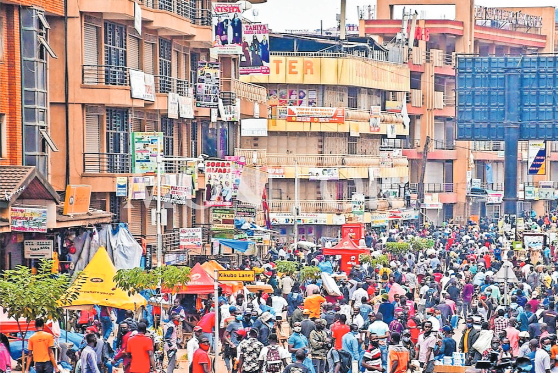Prime
We need candid discussions on tribalism

Author, Patrick Katagata. PHOTO/FILE
What you need to know:
- Mr Patrick Katagata says: Divisionism breeds suspicions, hatred, weakens or stifles national unity and transformation.
I commend a thoughtful article, “Few willing to openly discuss tribalism” by Mr Brian Mukalazi published in the Daily Monitor of March 29.
Chinua Achebe’s proverb: “Ours is ours but mine is mine” in his novel, No Longer at Ease, is often misused when discussing national interests against small groups’ interests. Used by the secretary of Umuofia Progressive Union, an organisation in Obi Okonkwo’s village that sponsored him to study in the United Kingdom so that he would on return use his knowledge to transform Umuofia, in Uganda, it is used rather discriminatorily and precipitates tribalism, sectarianism and nepotism. What comes first?
One’s nation or ethnicity, religion, political ideology etc.? How accurate, for instance, is the claim that Museveni’s government benefits only people from western Uganda? How many patriotic well-learned ‘westerners’ like myself hold no government job yet there are myriad Baganda, Basoga, northerners, etc. who greatly benefit from government? We must stop tribalistic politicking.
Samwiri R. Karugire posited in, A Political History of Uganda, that until the Nilotics’ influx in the late 15 Century, precolonial Uganda enjoyed a sort of natural unity although some political discourses dismiss this view as rhetoric and illusionary. Political organisation in precolonial Uganda revolved around prominent Kingdoms and scattered communities. Although not completely homogeneous, communities were generally unified except for the distinctive differences between the South and North!
Buganda Kingdom domineered and by the 19 Century she had expanded considerably at the expense of neighbouring and rivalry Bunyoro. In 1862, the first Europeans arrived, introduced Christianity and schools.
The contact with outsiders from around mid-nineteenth century onwards bred ‘religio-political polarisation’, first between Animists and Muslims, then between Muslims and Christians, then between Protestants and Catholic Christians and finally between political parties organised by the alumni of Protestant and Catholic schools, to which the troubles of post-independence Uganda are still attributed.
The 1900 Buganda Agreement simply legitimised these socio-political evils: furthered tension and conflicts internally and beyond. The British ‘divide and rule policy’ co-opted local kings and chiefs in advancing their interests thereby producing a racialised state and civil society, and tribalised rural populations. For instance, imposing Baganda to rule over majority other tribes caused resentment for Baganda.
The colonialists also favoured Protestants against Catholics and these rifts intensified in pre-independence elections between UPC for Milton Obote, a protestant northerner and Democratic Party for Benedicto Kiwanuka, a MugandaCatholic. It also explains the sour relationship between Obote as Prime Minister and the Kabaka of Buganda, Sir Edward Muteesa II, as ceremonial Head of State, culminating into the 1966 crisis.
The claims or reality that ‘westerners’ fill most top government positions because the President is from the west, as with Kakwas and Nubians or the Langi in Amin and Obote’s regimes respectively transcends historical errors to other regions’ thirst waiting to seize power and have their moment!
We can outdo our historical errors. Divisionism breeds suspicions, hatred, weakens or stifles national unity and transformation!
Mr Patrick Katagata Jr, is a former MP aspirant, Buhweju County




